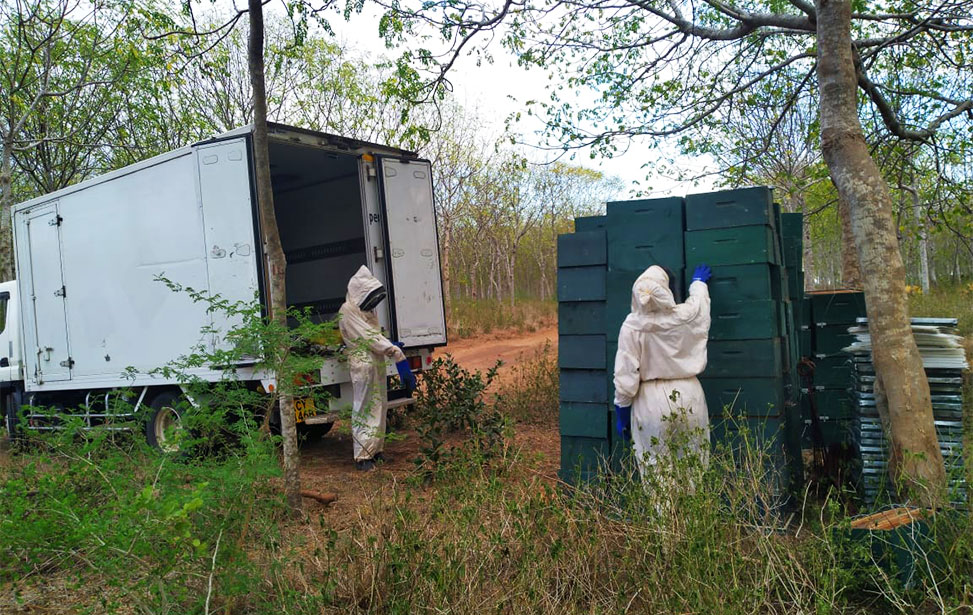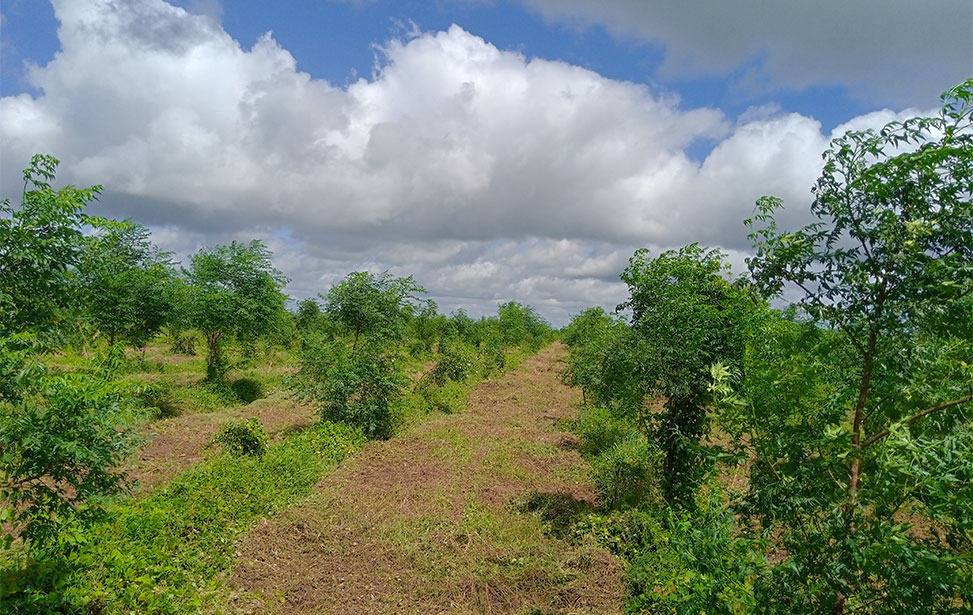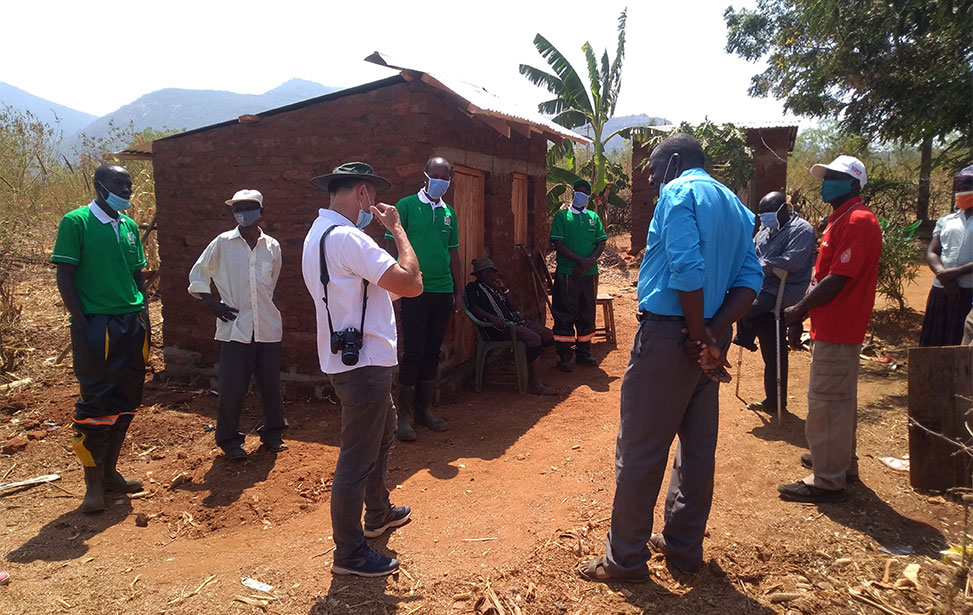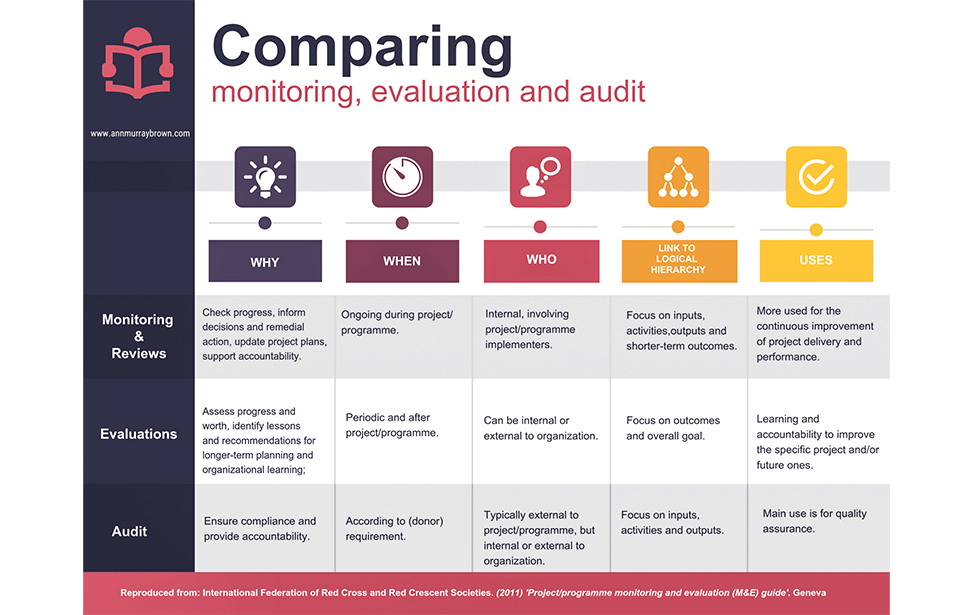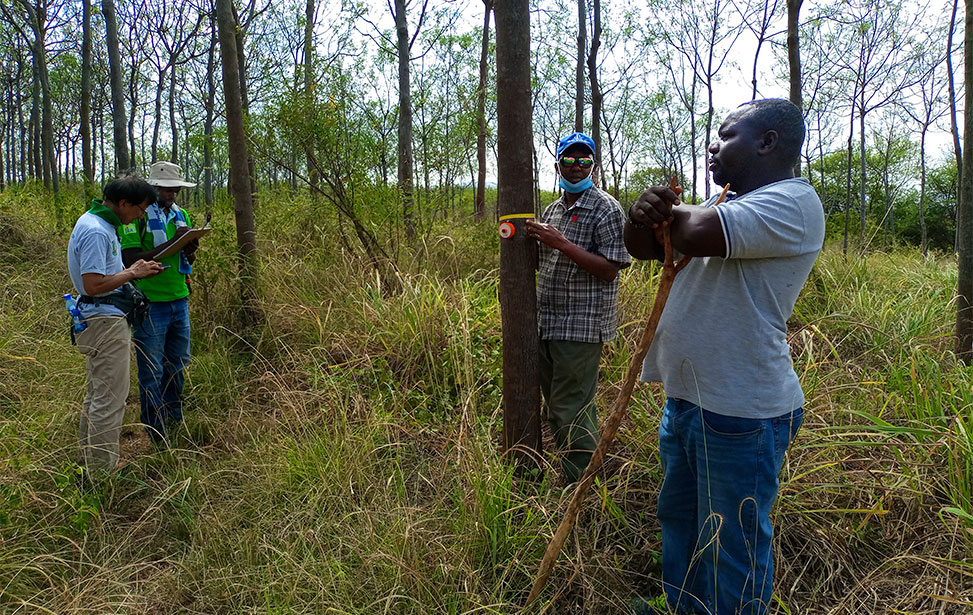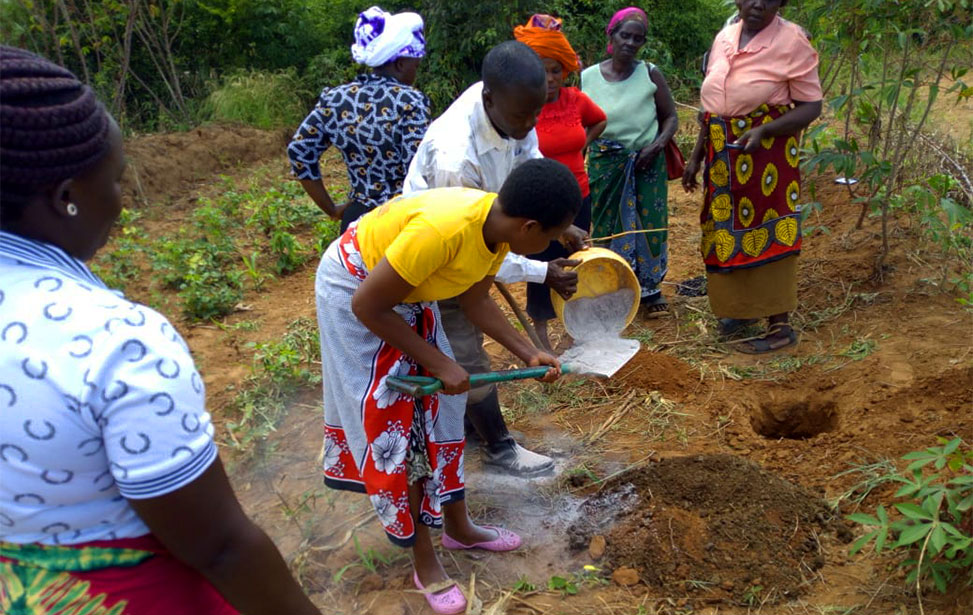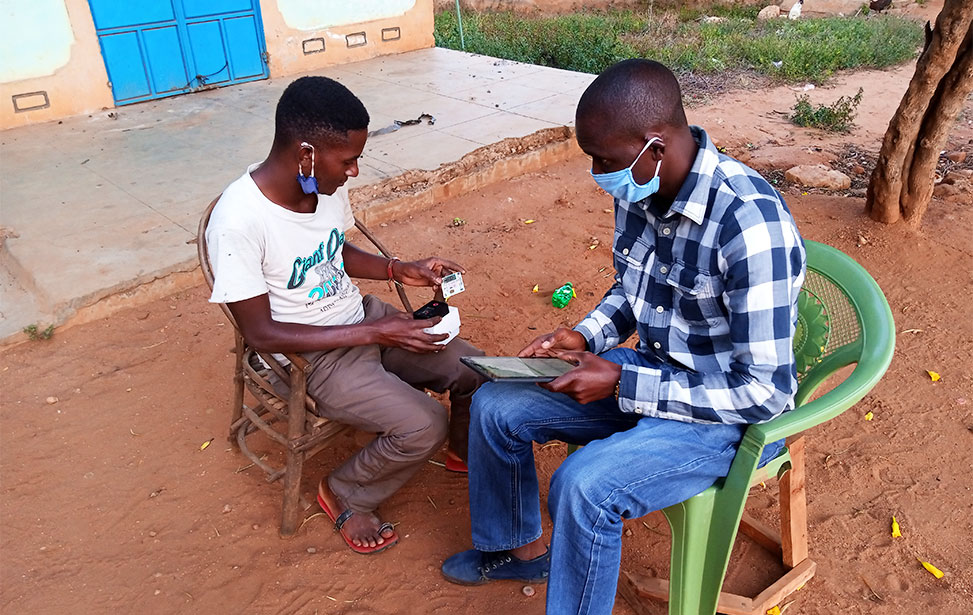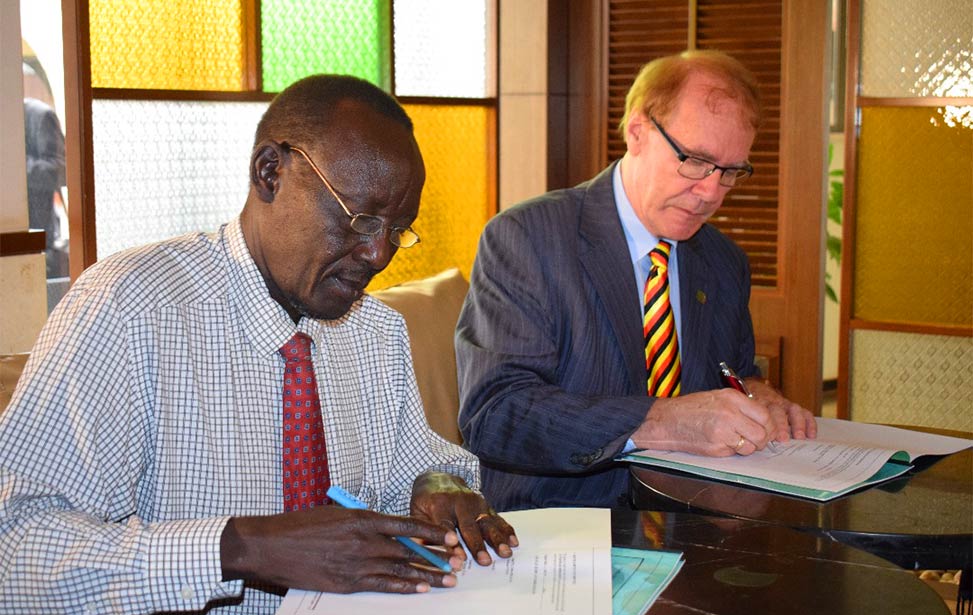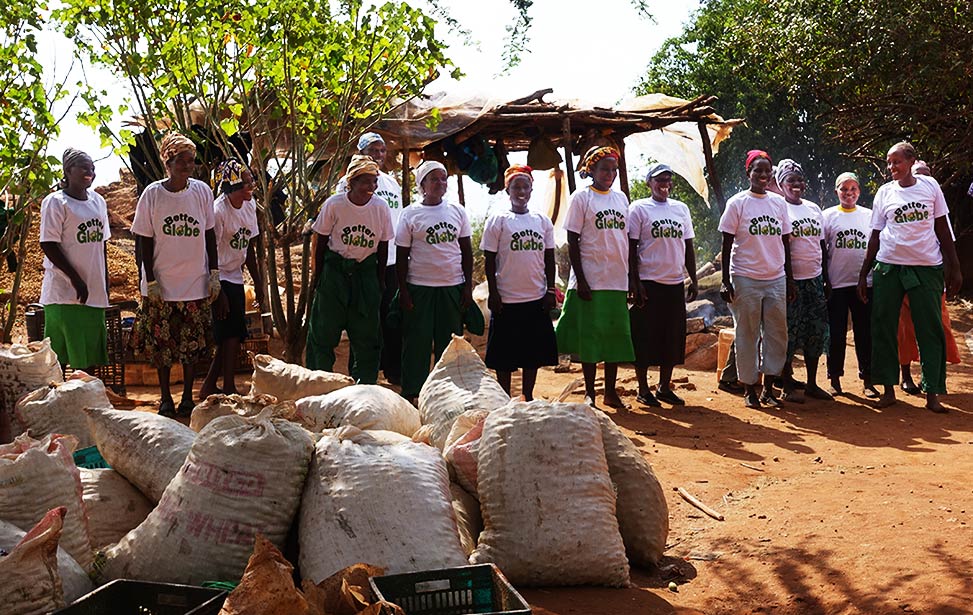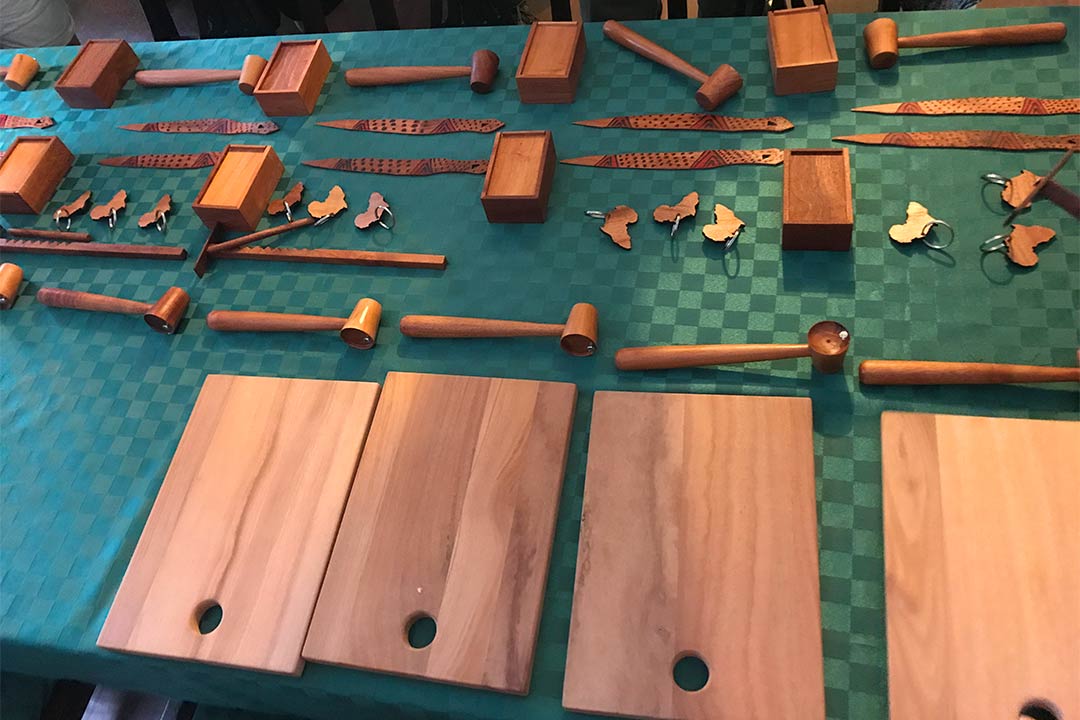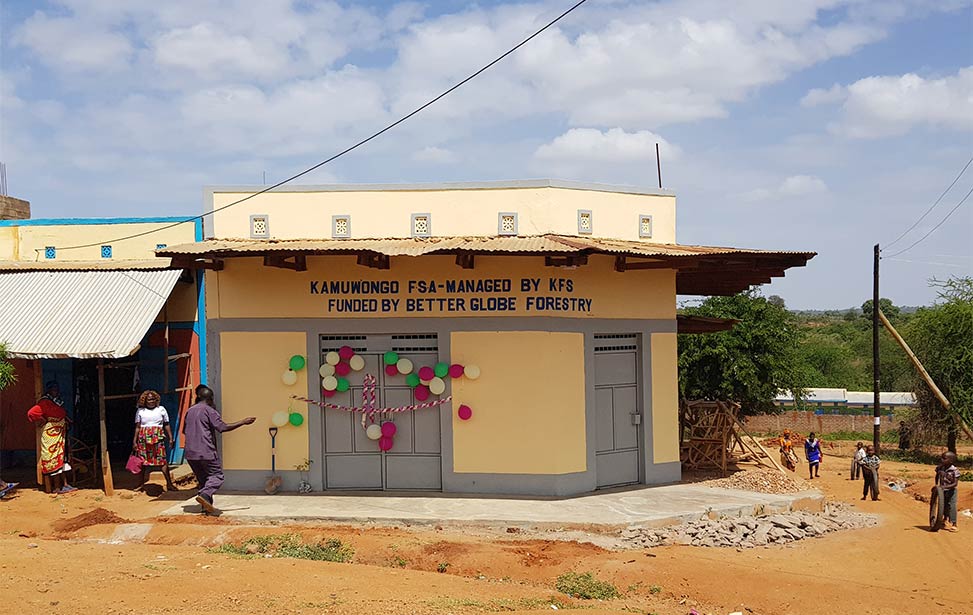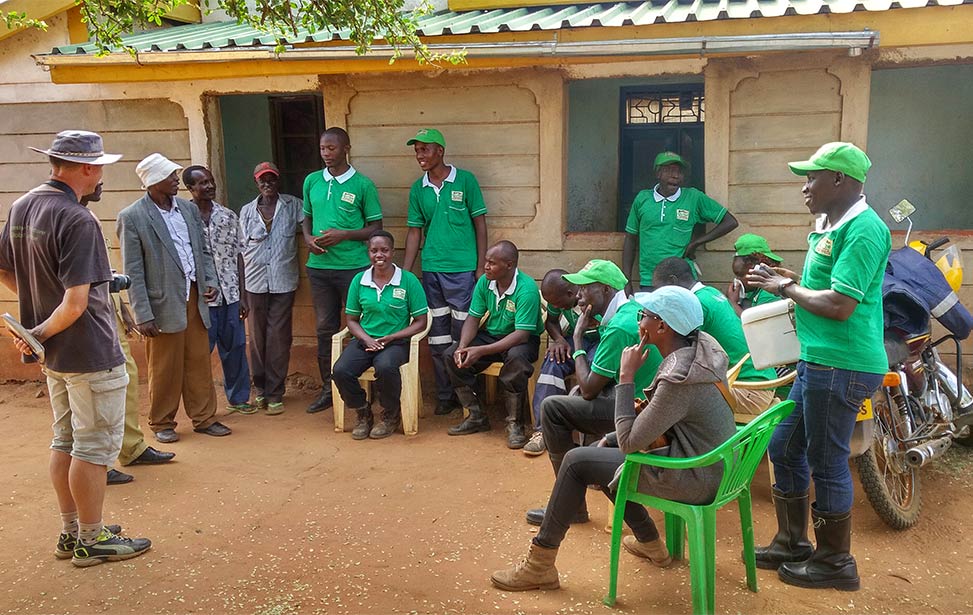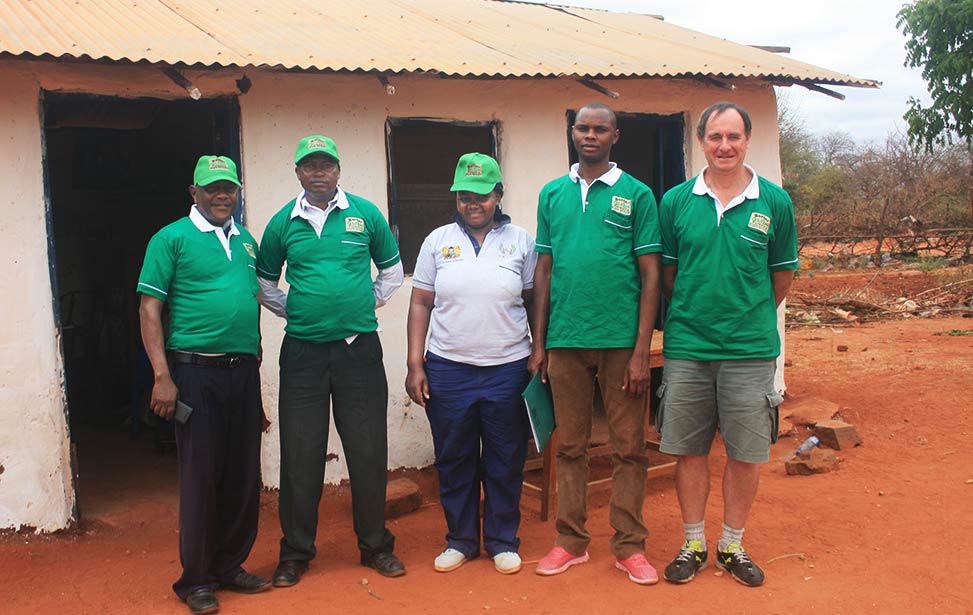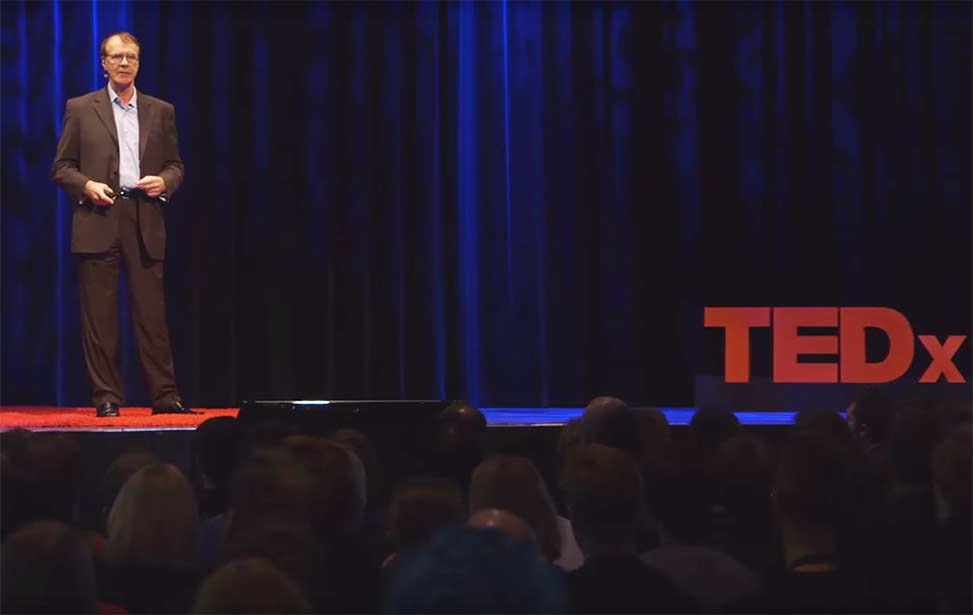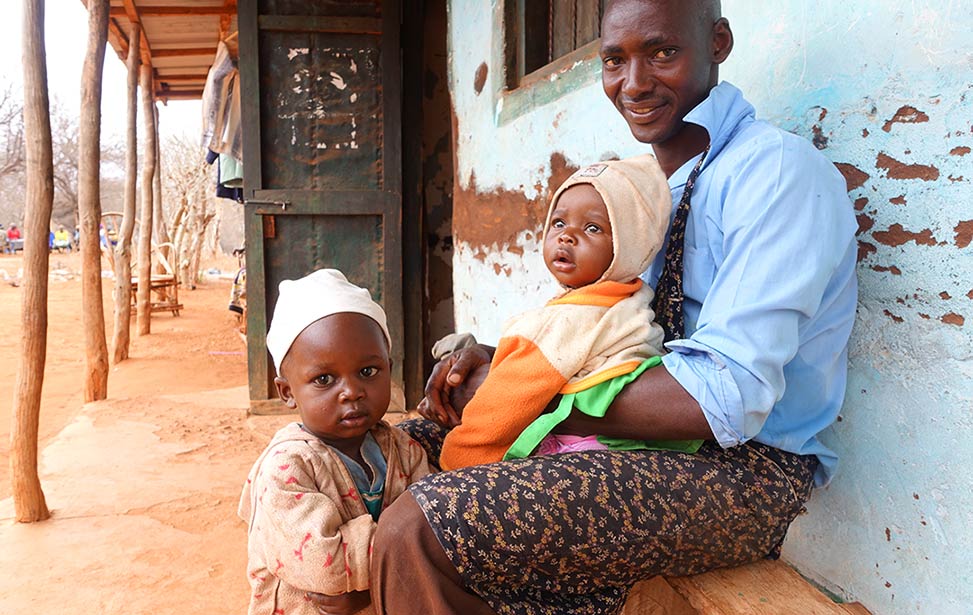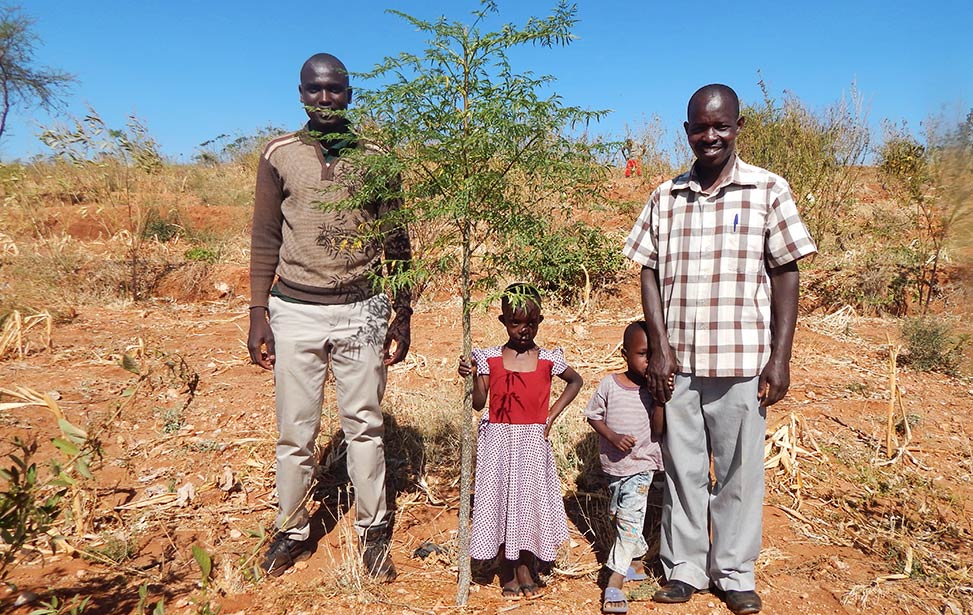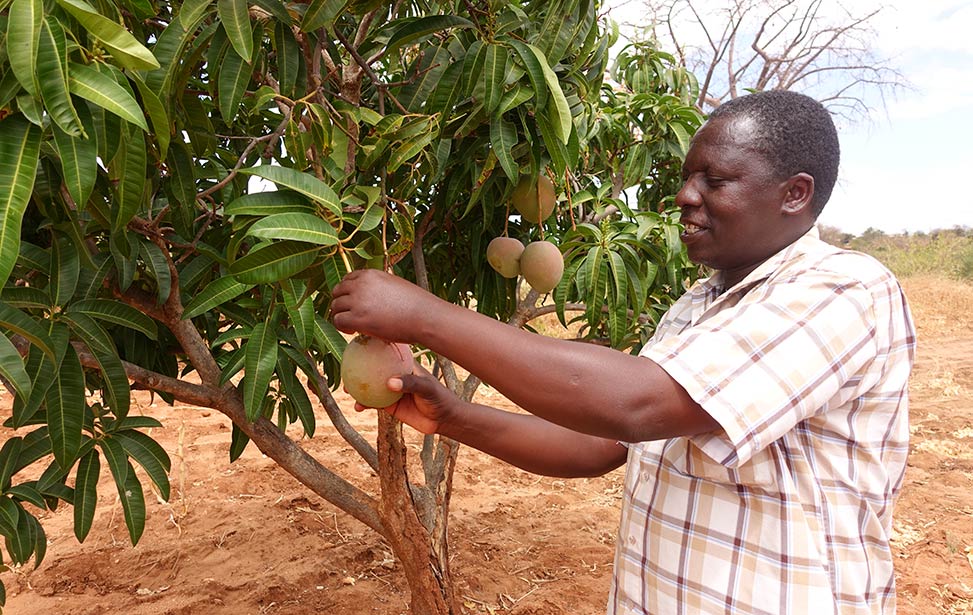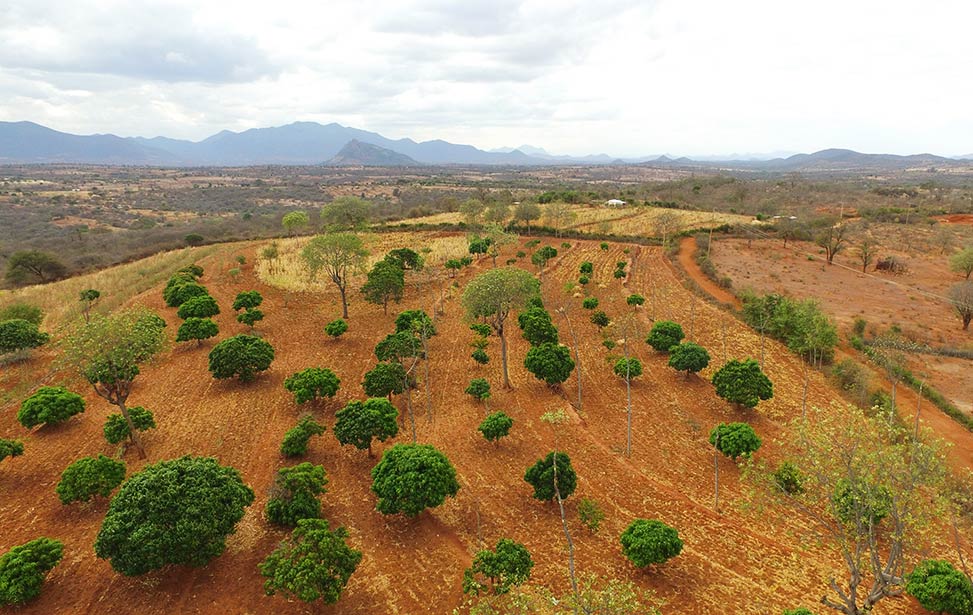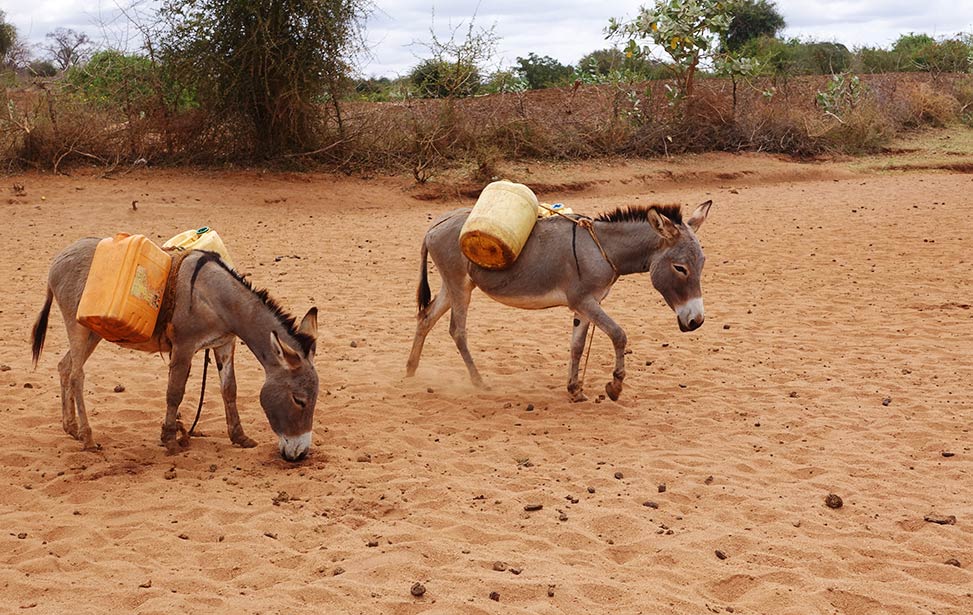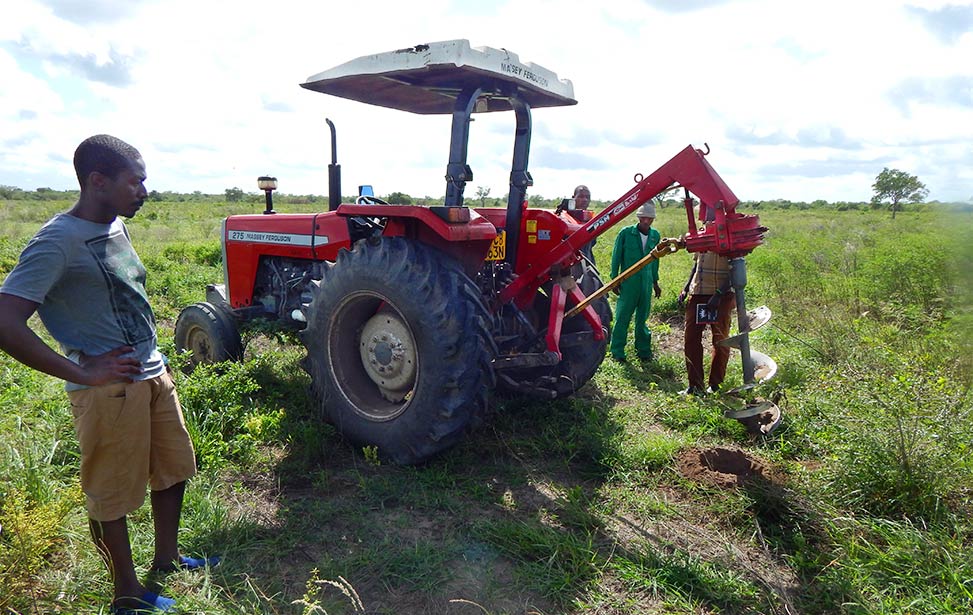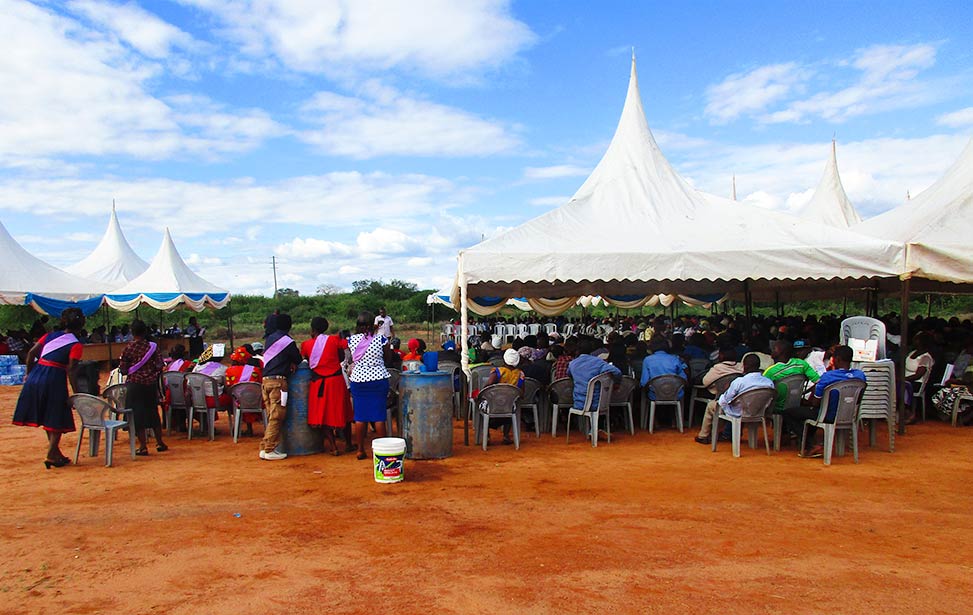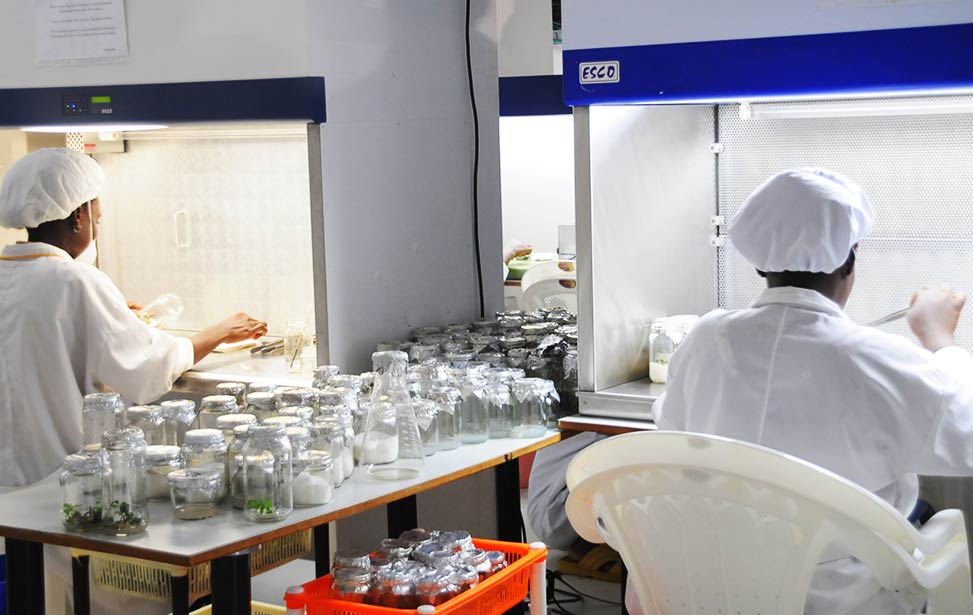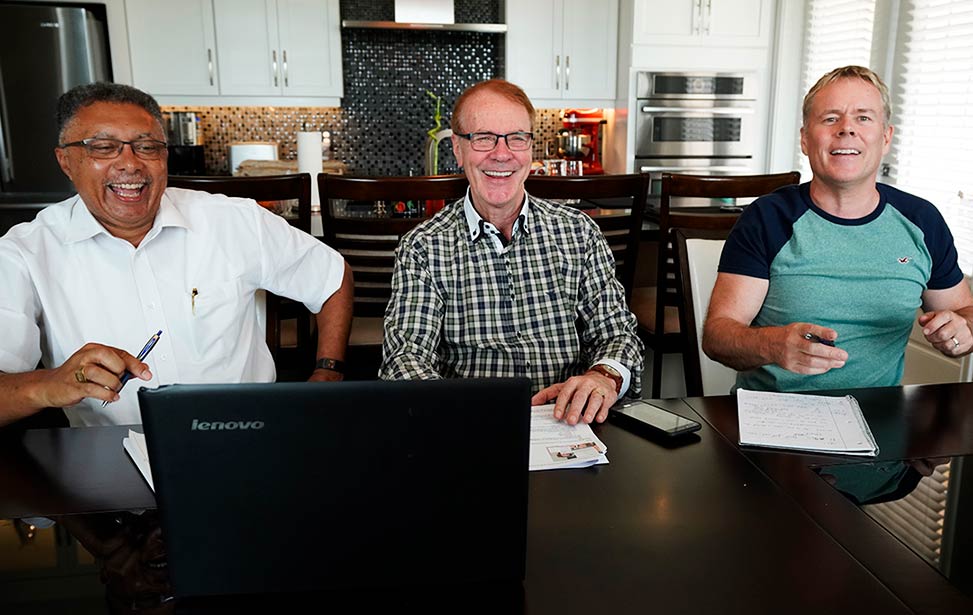
The Better Globe A-Team gathered together, from left to right: Jean-Paul Deprins (Managing Director of Better Globe Forestry), Rino Solberg (Chairman/CEO of Better Globe Forestry), and Jan-Tore Øvrevik (Managing Director of Better Globe Media)
Photo courtesy: Better Globe Media
- Jan-Tore Øvrevik
- Apr. 30, 2018
Rino founded what he calls the Better Globe A-Team. He has hand-picked the members of the team carefully -- members who have all dedicated their life to sustainable contributions to Better Globe’s vision and mission. In April, the top three members met together in Florida at Jan-Tore’s home to discuss current ongoing projects, and the strategic plans and future of our diverse companies in the Better Globe Group.
One of the main reasons for poverty in Africa is the challenges populations face in the dry areas where the roughest living conditions exist. Better Globe Forestry has been a pioneer in large-scale planting of trees in dry areas for 14 years. But planting trees is not enough. Together with massive employment, it is important to mention Better Globe Forestry’s CSR (Corporate Social Responsibility) program and its mission to support life in dry, rural areas through:
- Donation of trees
- Funding micro loans (microfinance)
- Support in education by refurbishing and building schools
- Support with water infrastructures
Donation of Trees
Today, 120 schools are participating in the Green Initiative Challenge (GIC) we have in partnership with the KenGen Foundation and Bamburi Cement Ltd., through which Better Globe Forestry donates tree seedlings to the schools. Students and teachers are taught and trained to plant trees and care for them to mitigate climate change, provide wood fuel and become an asset for alternative income opportunities for the local communities. It is all part of Kenya’s Vision 2030 to achieve 10 percent forest cover across the country. Besides tree cover, it also encourages caring for the environment. People understand the importance of planting trees and utilize the trees in a sustainable way, instead of cutting them to make charcoals or use as firewood until there are no more trees left, increasing levels of poverty.
Our partner farmer program has been a remarkable success. Today, we have more than 4,000 partner farmers in Kenya, and recently signed an MoU (Memorandum of Understanding) with Yele Ikom Can Atur Farmers Association (YICAFA) in Uganda, an association of over 7,000 farmers, with the goal of planting trees for prosperity. We train our partner farmers how to plant tree seedlings in an agroforestry setting among their food crops to improve the soil, give shadow and wind protection, hinder erosion, and give the farmers an additional income source. We produce and donate tree seedlings to our partner farmers, and the partner farmers own 50 percent of the trees. Better Globe Forestry buys back the other half of the trees when they are ready to be cut at a higher price than the market.

Better Globe Forestry’s training program is an effective way to empower its workers. The training program is intended for agroforestry agents and farmers to gain the skills and knowledge of different operations on site.
Photo courtesy: Better Globe Forestry
Our local mukau tree (Melia volkensii) in Kenya matures after 20 years, and then we harvest them. The process to create mukau seedlings is hard and cumbersome. While prospecting in Uganda, we discovered that the local tree species Giant Lira (Melia azedarach) has a similar quality to our mukau tree, and it seems easier to mass produce tree seedlings. Giant Lira can also be cut as early as after 15 years. Even with better prospects for the trees in Uganda, we will continue our efforts in Kenya in our effort to eradicate poverty.

Jan Vandenabeele, Better Globe Forestry's Executive Director of Forestry, showing our tree plantation of mukau trees at Kiambere site in Kenya
Photo courtesy: Sandra Norman
We have also started preliminary research for the possibilities of entering Tanzania. With our vision of planting as many trees as there are people on earth, we need hundreds of thousands of partner farmers to work with and enough land to accommodate all the trees. We have planted around 1.5 million trees to this day, but as this number is expected to increase dramatically in the next few years, the need for additional partner farmers will arise. We plan to process mukau into finished products on local sites when our trees mature. Prior to the processing, we will soon have some good news about the setup of a new in-vitro multiplication facility for our mukau trees in Kenya.

Funding Micro Loans (Microfinance)
With the need of partner farmers, we also need to support local communities, so they can earn money other than just planting trees. We funded and started our first microfinance bank in Mbuvu in Kenya back in May 2013. This enabled community members to obtain loans to purchase necessities such as livestock, tools, furniture, appliances, and pay school fees. These loans also allow them to generate more income.

One example of using micro loans to finance a sewing machine and help sewing and stitching clothes for the community and earn some income
Photo courtesy: Better Globe Media
Each person who obtains a loan also becomes a shareholder of the bank. After initial funding and some years of supported operation, the Village Bank will become self-sustained. Our first microfinance bank has more than 4,000 shareholders today. At the end of 2017, based on our positive experience, we funded a second microfinance bank in the Kamuwongo area in Kenya, which has about 1,000 shareholders already.
-
Read also at Better Globe Media: Cash Handouts and Microfinance Loans

Support in Education Through Refurbishing and Building Schools
With the help of crowd funding and donations, we are also helping the local society by refurbishing and building schools. We cooperate with the NGO Child Africa, which is well known for its unique educational program in Uganda, where it integrates deaf children in its schools and teaches all children to become champions and to fight corruption.
-
Read also at Better Globe Media: Child Africa's role in education and success
Support with Water Infrastructures
It can be very hard to obtain water in the drylands of Kenya. People living there are dependent on the rain seasons to grow their food crops, have water for their livestock, and water for themselves. We donate water tanks to schools, which fill up with water during the rainy season and can help supply both school students and their families with water in the dryer periods.

Mboti School in Kenya with water tanks donated by Better Globe
Photo courtesy: Jan Bolmeson
Our trees are adapted to dry areas, but they need watering in their initial growth stage, especially when planted outside the rainy season. During our more than a decade of operations, we have tried different water management systems. Collecting and storing water in basins has been one of the main sources so far. We have an elaborate water management system in our plantations, but simpler solutions also work well with our partner farmers, such as establishing half-moon shaped soil around the trees, or digging ditches to retain water.
-
Read also at Better Globe Media: A Hectic Time for our Workers During Rainy Season

The use of ditches to retain water
Photo courtesy: Better Globe Forestry
The Future is Green and Lush
It has been an adventure with lots of challenging work and patience to be a pioneer in planting trees in the drylands and to provide sustainable solutions that can help locals grow their way out of poverty. The progress may seem slow, but there is no fast solution to end poverty. We focus on developing crucial activities in areas where survival is a daily chore. There is no doubt our efforts set footsteps in areas we operate. As economic activities are initiated, husbands return home to their family from working in the towns. School fees can be afforded. Living conditions improve by the use of tools we make available for families.
We are teaching communities to understand the need for changes to build an economy that can protect their environment for survival, and to build a future for the upcoming generations. We are both honored and humbled to be able to witness how everything is put into action and how well our mission and the development made so far has been embraced. We are also extremely excited for the prospects that some of our newly developed projects offer to speed up our work and spread it to enormous areas. We are satisfying our vision of planting as many trees as there are people on earth and we understand what it will mean for the development of East Africa. With proper funding, we will copy this wherever we go and make changes no one else has ever done before.
With that said, back to work!


